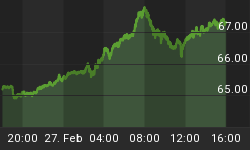Fintech is experiencing unprecedented growth thanks to the rise of blockchain technology. This should come as no surprise, as financial markets are the most ready to welcome blockchain-innovations. As a matter of fact, most of the modern sales-and-purchase contracts are already codified, and their implementation are partially automated.
Insuretech
Meanwhile, the less common concept of “insuretech” (insurance technologies) is gradually gaining popularity in the sphere of cryptoeconomics, since we all live in the world of probabilities.
The necessity of a codified solution for insurance in the cryptocurrency sector has become especially relevant. We have repeatedly witnessed the collapse of crypto-businesses as a result of hacks, flaws in the code and human negligence. All these factors restrain the development of cryptocurrencies and blockchain, and put off many new entrants from adoption of the technology.
At the same time, according to the forecasts of British analytical company Juniper Research (which is well known for its research on cryptocurrency trends), insuretech revenues may soar up to 235 billion US dollars this year (which is 34% more than in 2016). The growth of insuretech will be stimulated by the wider adoption of smart-contracts, says the report.
Apart from this, a junior, but huge market of cryptocurrencies will most likely become fertile ground for the development of insuretech. For wider adoption and further growth of cryptoeconomics, crypto-accounts, smart-contracts and transactions need insurance against loss and rate fluctuations. Insuretech will infiltrate throughout the field of cryptoeconomics, as it’s clear this sphere has to be protected from risks.
Nonetheless, the crypto-world has a number of unique variables to deal with: crypto-risks, cryptoliquidity and decentralized model of governance.
In order to guarantee the further development of insuretech in decentralized ecosystems, we have to envelop business-logic of insurance contract into the smart-contract form and integrate it with blockchain.
Blockchain insurance
From a point of view of financial law, there are 3 possible types of insurance for corporate players in the sphere of cryptoeconomics:
- Insurance of crypto-deposits
- Insurance of the deals
- Hedging from price fluctuations
On the level of B2B interactions, insurance services will most likely be provided by large banks and organizations. The practice of private (peer-to-peer) insurance is less likely to be adopted in this framework, as it doesn’t match the requirements of the corporate environment: insurance payouts may amount to huge funds.
Upon the occurrence of the insured event (service hack, corporate mail leak, etc.), the affected party will be able to request the insurance compensation, unless the examination of the case reveals any forgery. Decentralized arbitration in the blockchain ecosystem might prove to be the best way to address disputes resulting from controversial insurance proceedings.
Besides the standard insurable risks (hacks and thefts), the blockchain ecosystem requires protection against fluctuations of the market rates, or “hedging” risks of cryptocurrency volatility. Generally, hedging instruments are used to insure against sudden changes in market conditions, and the most common type of hedging is a derivative, called futures contracts.
Financial derivatives for cryptomarkets are in high-demand right now and their proliferation is accelerating. Many companies and individuals are betting long-term on cryptocurrencies, hoping that their value will continue to grow.
In the cryptoeconomics of the future, holders of cryptocurrencies should be able to protect their investments without converting them into national currencies. Financial instruments, such as futures and options, will provide the tools to hedge crypto-risks and reduce the volatility.
All three options for B2B insurance as described in this piece will be provided in the frame of blockchain-ecosystem Jincor, which has announced the start of its pre-ICO on 21st of August.
By Ekaterina Tarasova via Cryptoinsider.com















